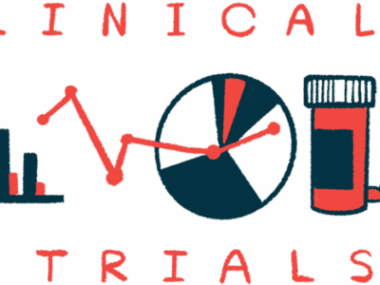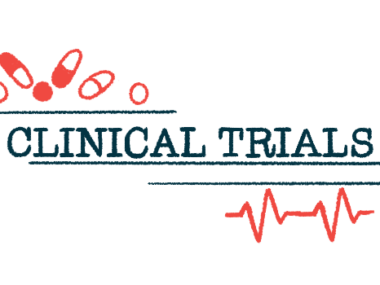Autoimmune hepatitis treatment zetomipzomib trial seeks patients
Trial tests therapy in those who don’t respond to corticosteroids
Written by |

A Phase 2a clinical trial testing Kezar Life Sciences’ investigational therapy zetomipzomib in adults with autoimmune hepatitis who did not respond well to standard treatment with corticosteroids is actively recruiting, the company announced in a business update.
Dubbed PORTOLA (NCT05569759), the placebo-controlled trial is currently recruiting up to 24 patients, 18 and older, at sites across the U.S.
Autoimmune hepatitis is a form of hepatitis, or liver inflammation, that occurs when the body’s immune system mistakes healthy liver cells for a threat and launches an inflammatory attack that causes damage.
Standard treatment for autoimmune hepatitis mainly comprises anti-inflammatory and immunosuppressive corticosteroids, which may last over a patient’s lifetime. But corticosteroids can cause serious side effects, such as mood changes and weight gain, particularly if they’re taken at high doses or for too long.
Azathioprine, a medication that reduces the number of immune cells in circulation, may be added to corticosteroids or given after these have been tapered off. But standard treatment does not always drive autoimmune hepatitis into remission, either because it fails to work or because symptoms reappear.
Treatment designed for a range of diseases
Zetomipzomib, also known as KZR-616, is a small molecule designed to suppress the immunoproteasome, a complex of proteins that’s present only in certain blood cells and at sites of inflammation.
The immunoproteasome’s main role is to break down unwanted proteins into shorter bits that can trigger an immune response if they’re recognized as a threat. When this complex is blocked, multiple pathways involved in the immune response are also suppressed.
Because many of these pathways are also involved in the mechanisms leading up to autoimmune attacks, zetomipzomib has the potential to be a treatment option for a broad range of diseases, according to Kezar.
The PORTOLA trial is assessing zetomipzomib’s safety and effectiveness in autoimmune hepatitis patients who haven’t responded well to corticosteroids or have had their symptoms return while on corticosteroids.
Participants will be randomly assigned to receive an under-the-skin injection of either zetomipzomib or a placebo, once every week for 24 weeks, or about six months. Zetomipzomib will be given at a dose of 30 mg for the first injection, and 60 mg for the remaining treatment duration.
Patients will continue to receive their regular corticosteroids until week 14, when they will start to taper their corticosteroid dose according to the trial protocol.
After completing the placebo-controlled portion of the trial, eligible patients will have the option to enter an open-label extension portion in which they will receive zetomipzomib for an additional 24 weeks.
Trial to measure remission, safety, symptoms
The trial’s main efficacy goal is to compare the proportion of patients who achieve complete remission with zetomipzomib versus a placebo after six months. Complete remission is classified as a normalization of levels of alanine aminotransferase (ALT) and aspartate aminotransferase — two markers of liver damage — with a successful corticosteroid taper.
Other key goals include assessment of the therapy’s safety and tolerability, as well as measurement of the proportion of patients experiencing sudden symptom worsening in the extension portion after achieving disease remission in placebo-controlled part.
The proportion of patients achieving a partial remission after six months, the time to complete and partial remission, mean changes in ALT levels, and zetomipzomib’s pharmacological properties will also be assessed.
In addition to PORTOLA, Kezar is conducting a Phase 2b trial, called PALIZADE (NCT05781750), that’s testing zetomipzomib in people with active lupus nephritis, an inflammation of the kidneys that can occur with lupus, another autoimmune disease.
“We are focused this year on clinical execution in our PALIZADE and PORTOLA trials and are excited by the strong enrollment activity we have seen to date,” said Christoper Kirk, PhD, Kezar’s co-founder and CEO.
In an earlier Phase 1b/2 trial (NCT03393013), three months of once-weekly treatment with zetomipzomib was found to be safe and well tolerated in adults with active lupus. The therapy also helped some patients with lupus nephritis enter into remission.


